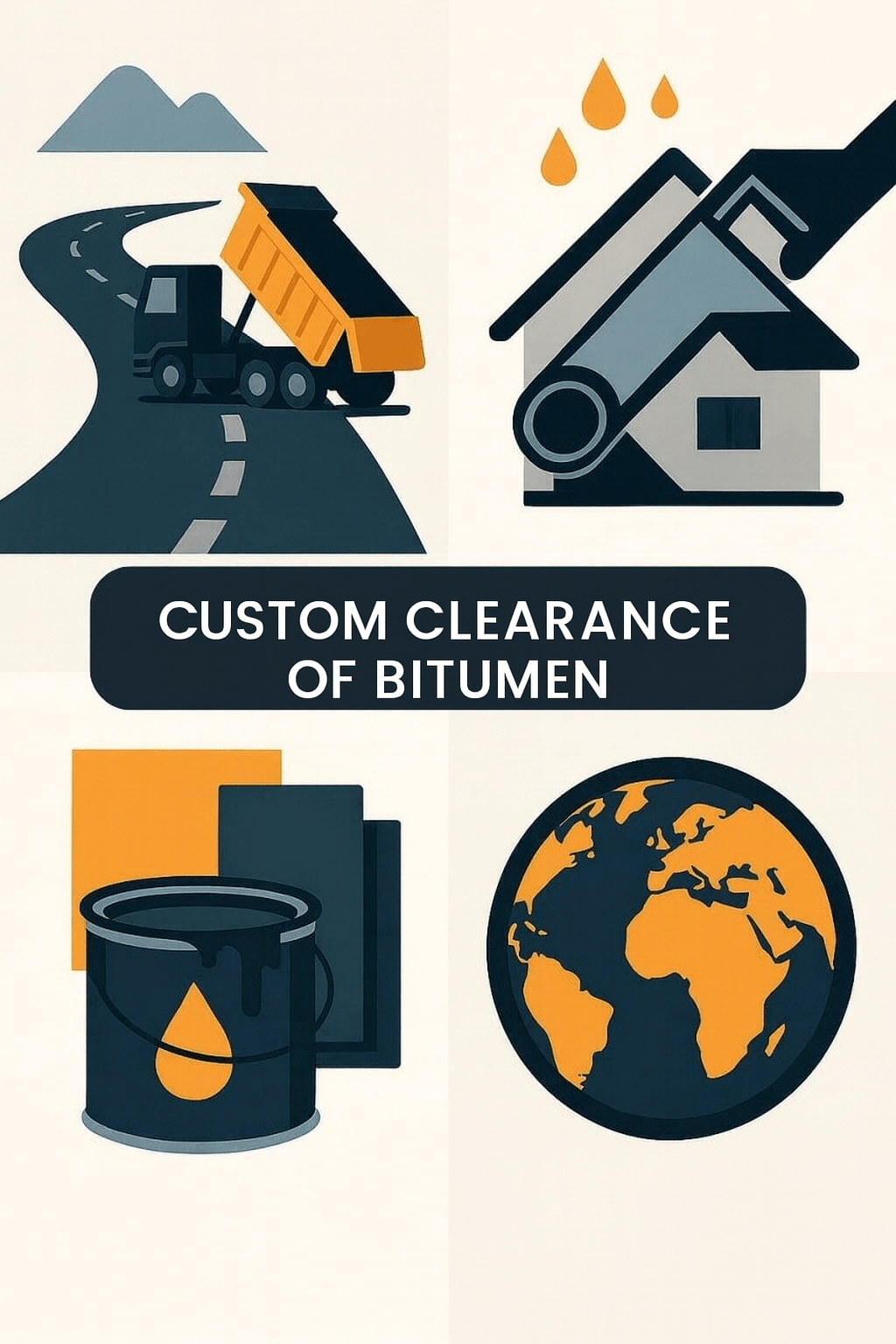Customs Clearance of Bitumen in Iran (HS Code + Documents and Standards)
To estimate the time and cost of bitumen clearance (petroleum/natural), contact the experts at Saba Tarkhis.
Instant Free Consultation
1) Applications of Bitumen in Various Industries
Asphalting and Road Construction: As an adhesive and weather-resistant material, bitumen is primarily used in asphalt production. Acting as the binder for asphalt components, it helps maintain road structure and prevents cracking and damage caused by rain and snow. By providing greater strength and durability, bitumen increases road service life and ensures better pavement quality.
Waterproofing: In the construction industry, bitumen is used to waterproof surfaces such as rooftops, walls, and water tanks. By creating an impermeable layer, bitumen prevents water and moisture from entering buildings and helps preserve and extend the lifespan of structures—especially important in regions with high rainfall and harsh weather.
Manufacturing Industrial Products: Bitumen is used to produce industrial products such as water-resistant paints, thermal insulators, and other specialty materials—particularly for applications requiring high resistance to water and environmental conditions.
2) Technical Considerations for Clearing Bitumen from Customs
Customs Tariff Code (HS Code)
International Standards
Customs Assessment
Transportation and Packaging
3) Global Import and Export Status of Bitumen
Volume of Bitumen Imports and Exports Related to Iran
Global Bitumen Turnover
Major Global Exporters and Importers of Bitumen
4) Required Documents for Clearing Bitumen from Customs
The invoice is a key document that must include all details related to the bitumen—seller and buyer names/addresses, issue date, invoice number, type and quantity of bitumen, unit and total price, and payment terms. Accurate information helps prevent customs issues.
The bill of lading—evidencing shipment from origin to destination includes the carrier’s name/address, date and B/L number, bitumen details, transport information, and destination. It must be provided correctly and completely to avoid problems.
This certifies the country in which the bitumen was produced and must include the producer’s name/address, country of origin, issue date, and approval from the chamber of commerce or competent authority in the origin country. It confirms authenticity and is important for customs.
The quality certificate confirms that the bitumen meets the required technical and quality standards. It should include test results, technical specifications (e.g., purity percentage and softening point), and accreditation from a recognized laboratory.
This certifies compliance with international standards such as ASTM D3460 or EN 12591. It includes the standard name/number, results of conformity, and approval from the relevant standards body. Compliance helps avoid customs issues.
In some cases, specific approvals from government agencies or regulators are required such as approvals from the Ministry of Petroleum and environmental permits if needed. These documents support establishment and management of the clearance process.
An import license issued by government bodies for bringing in bitumen. It must include the license number, issue date, importer info, and commodity type. This document is essential and must be submitted correctly.
These include information on cargo insurance and transport conditions—insurance policy, terms/coverage, and insurer contact details. Critical for protecting the shipment during transit.
Evidence of financial settlement for the bitumen purchase—payment receipt, bank account info, and payment date/amount. Required to verify financial transactions.
Including the customs declaration, HS Code, and documents related to national customs laws and regulations. Submission facilitates and speeds up clearance.
| Item | Short Description | HS Code |
|---|---|---|
| Petroleum bitumen (Petroleum Bitumen) | Refining product; asphalt/waterproofing/industry | 2713.20 |
| Natural bitumen/asphalt and bituminous rocks | Natural bitumen, bituminous sands/rocks, natural asphalt | 2714.90 |
Exact classification depends on origin (petroleum/natural), form of supply (bulk/drum), viscosity, and end use.
Need precise HS determination, ASTM/EN standard coordination, and document preparation? Our team manages the case end-to-end.
Submit Proforma Request
Frequently Asked Questions
What are the HS Codes for petroleum and natural bitumen?
As per your text: petroleum bitumen is generally classified under 2713.20 and natural bitumen/asphalt under 2714.90; final classification depends on origin and specifications.
Which standards are accepted for bitumen?
Your text mentions ASTM D3460 and EN 12591. Depending on bitumen type/application, additional standards may be requested.
What are the key documents required for bitumen clearance?
Invoice, bill of lading, certificate of origin and quality, standard certificate (ASTM/EN), order registration permit, cargo insurance, customs declaration, and other administrative formalities.
Special Customs Clearance Services by Saba Brokerage
To facilitate bitumen clearance and reduce costs, Saba Brokerage leverages its experience and expertise to provide special services as follows:
Specialized Consulting: Using up-to-date knowledge and awareness of the latest laws and regulations, we provide expert advice on selecting the correct HS Code, required documents, and adherence to international standards. This helps you proceed confidently and avoid mistakes.
Customs Process Management: Comprehensive and effective management of all clearance steps, including order registration, document submission, and necessary follow-ups with relevant organizations ensuring a smooth, on-time process with careful tracking of all customs matters.
Transport Coordination: Managing bitumen transport from origin to destination with attention to special transport conditions and proper packaging. Using reliable logistics networks minimizes transport-related issues and prevents problems at this stage.
Issue Resolution: Addressing potential problems and providing swift, effective solutions to prevent delays in the clearance process. With our expertise and experience, issues are resolved efficiently to streamline clearance.
Using these special services can significantly reduce the time and costs associated with bitumen clearance and ensure a flawless, optimized process so you can complete projects on time and with high quality.
.png)
